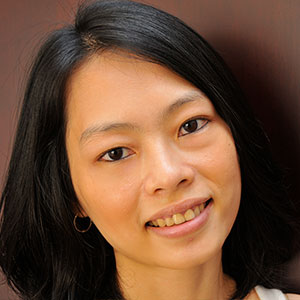So, four UPSR papers have been leaked. Why did this happen, and who is to blame?
The first two leaks were found in the Science and English papers. Then, when news of the second leak came to light, disappointment turned to outrage.
For the Parent Action Group for Education (PAGE), such leaks are not surprising as they are a long-running issue. It is so mainly because the standards set by the Malaysian Examinations Syndicate make it unfeasible for any leaks to be regarded as a form of leak.
Amidst these frustrations, the UPSR disaster opens up another debate. It has now put tuition teachers in the spotlight because apart from the teachers, tuition centres are also one of the parties that could be guilty of such practices.
The business of tuition is a booming industry, and very often, tuition teachers earn much more than a schoolteacher. More interestingly, the money that parents spend on tuition is normally higher than the school fees themselves.
It is also common for children to go tuition classes, and it is unusual if they do not.
From properly established tuition centres to private tutors and even ad-hoc sessions in Starbucks, tuition classes are everywhere.
What actually pressures these parents to send their children for tuition?
Is it just a trend or is our education system so terribly flawed?
Well, there are many factors behind it.
Unlike schools, most tuition centres give “tips” to the students to “score” in the exams and focus on the answering techniques. The famous tagline for branding and marketing is none other than “Score A”.
But is scoring A’s so important in determining a child’s intelligence?
Parents want their children to score A’s in the examination, as many as they can. As we can see from the news every year, each time the government examination results are announced, the main highlight is who has scored the most A’s.
We have also heard plenty of complaints that schoolteachers tend to teach only minimally during school hours but provide more “service” during their tuition classes.
I talked to a friend of mine who has been a tuition teacher for many years now. According to her, competitive parents enrol their children for tuition classes in the hopes of giving their children an extra edge for their future career and development.
Some parents believe that tuition does magic for their children’s academics. Due to peer pressure and the “kiasu” influence, they blindly send their children to tuition classes so as not to lose out.
But more importantly, parents do not have trust and confidence in our own education system.
Therefore, they are left with no choice but to send their children to tuition classes because they feel the quality of education in schools is not up to mark.
Tuition centres can become popular and sought after simply because the demand is high. Business is boosted if they can spot questions for the examination. Spotted questions then raise the popularity and business of these tuition centres.
In my opinion, the Education Ministry’s obsession with academic excellence and examinations is one of the main reasons for all these issues.
For example, the performance of schools in major government examinations is used as a yardstick to assess and grade these schools. Schools that do not perform well in the examinations are reprimanded.
Children are not machines to produce A’s and teachers are not robots who enable non-academically inclined children to score A’s.
The key point is that this is no longer about the child.
As mentioned by the schoolteacher I talked to, often it is about the parents’ expectations. It is usually the parents, rather than the kids, who request for tuition.
Some parents also tend to see their children’s grades as a yardstick of their parenting skills. Bad grades would mean they have failed as parents.
Today, tuition plays an even bigger role in a student’s life. I encountered an 11-year-old girl who has more “appointments” in the form of tuition classes than any working adult.
As more and more time goes into tuition, students suffer a lot of stress to excel and to think of ways to score A’s.
As the tuition teacher told me, “If the ratio of students and teachers could be cut down, if the kiasu and result-oriented mindset could be put away, if the homework could be reduced, if the quality of schoolteachers could be increased, then, in such a case, who needs to go for tuition?”
What she said is very true. Children need time to relax and be with their parents, and normal school days are enough to learn. Our education system should run on the basis that tuition is not a necessity; rather, it is a choice that students and their parents make together. – September 29, 2014.
* This is the personal opinion of the writer or publication and does not necessarily represent the views of The Malaysian Insider.


Comments
Please refrain from nicknames or comments of a racist, sexist, personal, vulgar or derogatory nature, or you may risk being blocked from commenting in our website. We encourage commenters to use their real names as their username. As comments are moderated, they may not appear immediately or even on the same day you posted them. We also reserve the right to delete off-topic comments